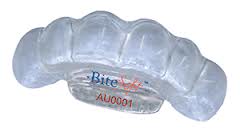Call: 781-272-0540
General Dentistry
When it comes to preventative dental care, you'll be happy you chose the office of Dr. Randall Smith. From comprehensive exams and cleanings to white fillings and bonding, crowns and implants to partial dentures and root canals, you'll receive the compassionate, attentive and most technologically advanced care you would expect. Thank you for trusting our office with your dental care.
Oral Cancer Screening
Oral cancer affects nearly 35,000 Americans every year. The keys to surviving oral cancer are early detection and early treatment. This starts with a regular oral cancer screening – at least once every six months. Introducing the Velscope Oral Cancer Screening System. An oral cancer screening takes just minutes, is pain-free and can be performed during regular dental exams. With this early disease detection screening, we may be able to discover precancerous and cancerous tissue that might have otherwise gone undetected. Now that’s technology you can’t afford to live without.
Dental Exam
The secret to a bright, healthy smile is actually no secret at all: brush, floss and get a professional dental exam at least once every six months. Professional dental exams are all about prevention – preventing existing problems from getting worse and preventing dental problems from developing in the future. Regular dental exams make it possible to identify and treat a problem in its earliest stage – which is not only good for your oral health but also good for your budget!
There's nothing to fear with a dental exam. Your teeth will be visually examined for signs of plaque, tartar and tooth decay. Your gums will also be examined for puffiness or discoloration, which are signs of gum disease. A full set of dental X-rays will be taken during your dental exam, This will enable your dentist to see in between your teeth and the bone health below. In addition we also use a high-tech camera to see below the surface of your teeth, this will enable us to observe any decay below the surface of your teeth. Dental exams typically end with a dental cleaning, to remove surface stains and buildup. You will feel educated about the existing condition of your mouth.
Teeth Cleaning
At the beginning of your teeth cleaning you will be asked to consider answering these four questions.
1. What's important to you?
2. What do you see?
3. What would you like to see?
4. Have you ever considered a budget for your dental care?
By the end of your visit you will be better able to answer these questions.
No matter how often you brush and floss, plaque and tartar deposits can still build up on your teeth. A professional teeth cleaning is the single most effective way to remove these deposits and prevent them from causing more serious problems in the future. While a traditional teeth cleaning involves manually scraping away these deposits with special dental tools, advances in dental technologies now give you more options for teeth cleanings.
A deep cleaning may be recommended if excessive plaque and tartar deposits have developed below the gum line. Deep cleanings, also known as scaling and root planing, involve a two-part process: first, the stubborn deposits are removed, and then the root surfaces are smooth. A laser can be used as an adjunct in this process to disinfect the gums and promote more rapid healing.
Clenching, Grinding, or Jaw Pain Treatment
At the office of Dr. Randall Smith, we now have an effective treatment for TMD related symptoms. If you grind or clench your teeth, we now have a technique to position your jaws in a way that both protects you and re-positions your mouth, resulting in a reduced tendency toward this self-destructive habit. Ask about our all new and exciting treatment for TMD related symptoms - Bite Soft.

White Fillings
If your silver fillings make you feel self conscious when you smile, or it's simply time to replace them, consider white fillings. White fillings are just as durable as they are attractive! Made of composite resin, white fillings match the natural color of your teeth and are an excellent option for small to mid-sized cavities. White fillings are strong, stain-resistant and require less removal of your tooth structure than amalgam fillings.
Gum Disease Treatment
Red, swollen gums are a red flag for one thing: gum disease. If you have the symptoms, you're not alone. More than 80% of adults have some form of gum disease. Fortunately, there are many effective and pain-free gum disease treatments. For gingivitis, the mildest form of gum disease, treatment typically involves a thorough dental cleaning, followed by daily brushing and flossing. Advanced gum disease, also known as periodontal disease, requires scaling and root planing to remove stubborn deposits below the gum line. A Laser can be used to assist in this process with even more effective results. If non-surgical methods of gum disease treatment do not completely eradicate the infection, periodontal surgery may also be necessary.
Dental Crowns
A dental crown may not make you feel like royalty, but it is one of the premiere treatments for teeth with extensive decay or damage. Dental crowns can also be used to hold a dental bridge in place, cover misshapen or severely discolored teeth, or cover a tooth after a root canal procedure. Made of either porcelain-fused-to-metal, zirconia, ceramic or gold, dental crowns are placed during a multi-step process and sometimes require more than one dental visit. The first step is a dental impression. A temporary crown is then placed to protect the tooth while the impression is sent to an offsite laboratory to create the final restoration. In some cases, same-day crowns are possible, so be sure to inquire. With good oral hygiene and minimal wear and tear, your beautiful new dental crowns can last up to 15 years or longer.
Endodontics
Root canals get a bad wrap. But don't believe the rumors; the dreaded root canal isn't dreadful at all! Root canals are needed when either decay or an injury infects the inner tooth (the pulp). In the earliest stages of infection, you may not feel any pain at all. But when it progresses, you could have a toothache and swelling, or a dental abscess might form. Root canals remove the infection and prevent it from spreading. Thanks to the newest Wave One technology this process is more comfortable and can be completed in one visit. Pulp capping is an alternative to root canals that are used when the infection has yet to penetrate the pulp. Pulp capping can also prevent a large dental filling from getting too close to the nerve.
95% of root canals can be performed in-house.
Oral Surgery
Oral surgery is an umbrella term for surgical treatments such as dental implants, wisdom teeth extractions and bone grafting. Dental implants, an excellent solution for missing teeth, are surgically placed tooth roots that hold dental crowns in place. A wisdom tooth extraction may be recommended if there isn't enough room in your mouth to accommodate wisdom teeth and they become impacted, partially erupted or infected. Bone grafting can be used to maintain or build up the jaw after an extraction. This will better prepare the area for an implant and give a much more esthetic result. Most extractions are performed in-house.



